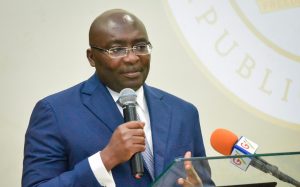
[ad_1]
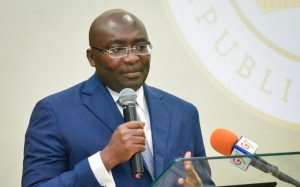
Ghana's economy is skyrocketing. This is what the World Bank and the International Monetary Fund (IMF) are predicting for this year.
The IMF talks about an 8.8% growth rate in its World Economic Outlook, which would make Ghana the world's fastest growing economy in 2019. Last year, the country's economy rose only 5.6%, which places it in sixth position. Where does this new momentum come from and in which sectors is Ghana doing particularly well?
Adu Owusu Sarkodie of the University of Ghana believes that the oil sector is the main source of growth. "We discovered new oil fields […..] companies have started to operate, they have intensified their operations, "he said in an interview with DW. In the list of the main African countries in economic growth, Ghana is closely followed by its neighbor Côte d 'Ivoire with 7.5% and Ethiopia with 7.7%. It is interesting to note that the growth rate of these two countries from 2018 to 2020 seems to be constant, while Ghana's growth is expected to slow down again in 2020.
"I think it's more of an isolated case," said DW Papa Ndiaye, head of the regional studies division of the IMF's Africa Department. "We do not expect this growth rate (8.8%) to be maintained over the medium term. And when you look at it per capita, it's still lower than what countries like China have experienced in the past. " Ndiaye confirmed that Ghana's economic growth is expected to slow to around 4.5% to 5%.
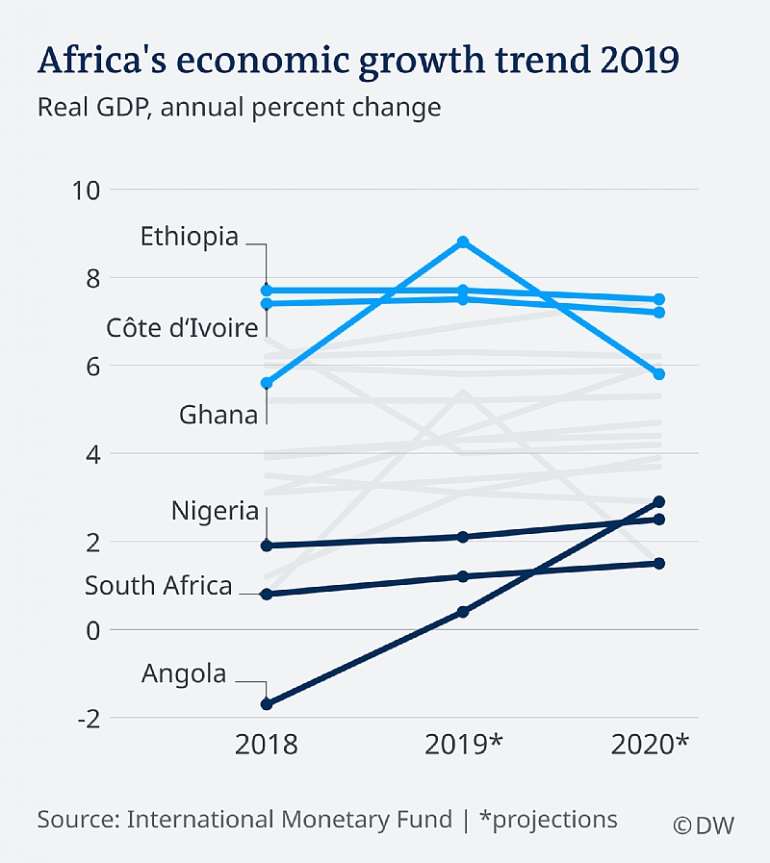
The backbone of Ghana
For Ghana, the first growing country in Africa, oil is not the only engine of the economy. "The non-oil sectors, agriculture, manufacturing and services are also picking up. Now they are all growing up, "said Sarkodie.
The agriculture sector has enjoyed significant growth over the last two years, thanks to the emphasis placed by policy makers on food and employment. For example, 200,000 farmers received improved seeds and fertilizers. The sector remains one of the main pillars of Ghana's economy. According to the Minister of Agriculture, Owusu Afriyie Akoto, the program has allowed a good harvest throughout the country. "We are expecting a bumper crop because of the impact of this great program on agriculture, even in its infancy," he said.
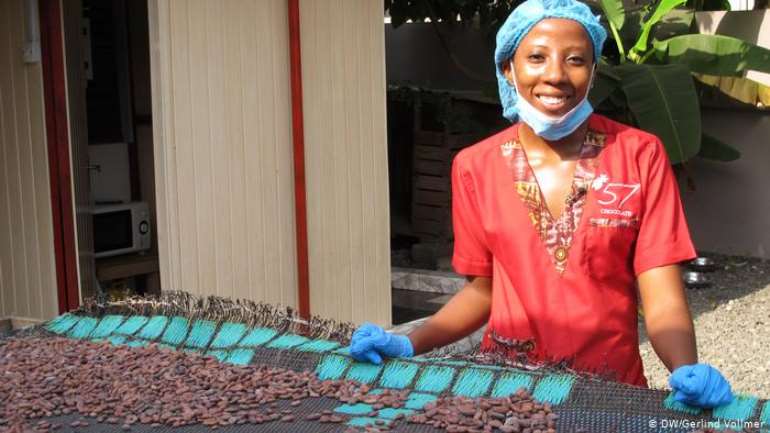
Cocoa is Ghana's main agricultural product export.
Winners and losers
But where there are winners, there are also losers. Angola comes last on the list of African countries, with economic growth forecast of only 0.4%. Last year, it suffered a drop of 1.7%. South Africa is also far behind, with an expected growth rate of only 1.2%, an increase of 0.4% over 2018. The oil giant Nigeria, the oil giant, is last with a growth rate of 2.1%.
"These countries have been hit very hard by falling commodity prices," Ndiaye said. "You have to go back to the 1970s to find something of the same magnitude. These countries are recovering slowly but it will take time. It also requires countries to implement reforms aimed at diversifying the economy and stimulating private sector activity by removing some of the constraints that most impede growth and by restoring a better business environment. "
The IMF divides the 46 countries listed into three groups: oil exporters, middle-income countries and low-income countries. The oil exporters group, with a growth rate of 2.0%, is doing worse than middle-income countries with 3.4% and low-income countries with 5.3%, a trend that has been observed in the past. it could already be seen in 2018. In total, Saharan Africa can record GDP growth of 3.5%. What makes this year's announcement so interesting for Africa is that it is an African country that seems to be the economic spearhead, in front of international heavyweights such as China or India.
"The economy must belong to Ghana"
Ghana is the world's second largest cocoa producer, which probably also explains why this West African country is the continent and world leader in strengthening economic power. But unlike the agricultural sector, where many Ghanaians play a role, investments in the mining and oil sectors have been largely led by foreign investors. According to Sarkodie, it's a problem, even if these investments have a long-term effect.
"My main concern is the source of growth," he told DW. "GDP is a national product no matter what foreigners or Ghanaians produce. But we know that in Ghana, most of our societies belong to foreign interests. This means, according to Sarkodie, that "the impact on the lives of Ghanaians will be minimal".
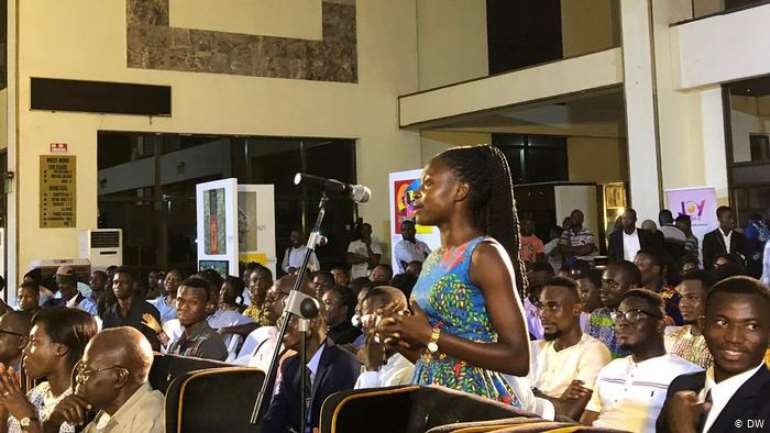
Young Ghanaians participated in the 77% youth debate organized by DW in Accra in November 2018
Digitize the economy
In order to attract investors, countries need well-designed reforms to provide entrepreneurs with optimal returns. That's what Ghana is trying to do. Three years ago, the government obtained a loan from the IMF of $ 925.9 million (820 million euros). The agreement, which ended in early April, aimed at restoring debt sustainability and the country's macroeconomic stability to promote a return to strong growth and job creation while protecting social spending. . Several economic reforms, including the reduction of the budget deficit and the fight against corruption, have been put in place. According to Ghana's Minister of Finance Ken Ofori-Atta, some of these measures have repositioned the economy. "Inflation is one digit, which is good. Growth was strong, 6% in the third quarter of last year. Our budget deficit has decreased and we also have surpluses in our current account. "
Sarkodie admits that the management of Ghana's national economy has been on the right track. "We have entered the IMF program to seek political credibility. In fact, at the time we were part of the IMF program, the situation was very bad. Now, all the macroeconomic indicators look good. Inflation is down, the exchange rate is a bit brutal now, but I'm sure it will be stabilized, "he said.
What must happen now is that the conditions for maintaining the high growth rate are created, said Ndiaye. "And that means containing vulnerabilities. This means boosting the activity of the private sector, ensuring that the private sector is leading growth. And it also requires making growth inclusive, as it is one of the key conditions for maintaining a high growth rate for a long time. "
Ghana is now seeking to stimulate technological innovation and to involve more young people in maintaining and improving the country's economic performance.
Source link